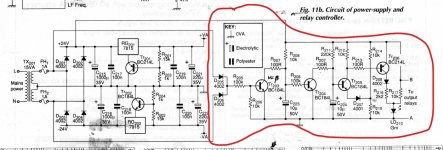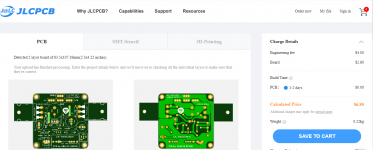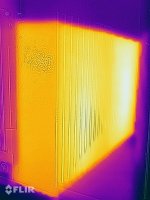show the diagram the Altronics 20W class A please, let's try to figure out what's wrong with itI have a good dozen things in the shed (from .75w to 200W), including the Altronics 20W class A amp which looks surprisingly close to your proposal.
The original '69 JLH (with regulated supply) is what stays in the system.
best regards
try with this
"Silicon Chip 20W Class A Amplifier"
did you mean this diagram? So no one showed her
https://www.diyaudio.com/community/...lass-a-amplifier-opinions.118351/post-3686527
minek123, Thanks!
but in the shown circuit there is no correction capacitor of 100 pF, without it the circuit is inoperable. And with a capacitor, the signal propagation delay time is 1.2 μs, which is 150 times longer than required by the Hafler criterion (SWDT). Therefore, it is not surprising that such an amplifier is idle in the garage.
This is a typical Douglas Self amplifier. Transfer to class A eliminated only switching distortions, while other types of distortions responsible for sound quality remained unchanged. Therefore, this is a useless stove (heater)
but in the shown circuit there is no correction capacitor of 100 pF, without it the circuit is inoperable. And with a capacitor, the signal propagation delay time is 1.2 μs, which is 150 times longer than required by the Hafler criterion (SWDT). Therefore, it is not surprising that such an amplifier is idle in the garage.
This is a typical Douglas Self amplifier. Transfer to class A eliminated only switching distortions, while other types of distortions responsible for sound quality remained unchanged. Therefore, this is a useless stove (heater)
Last edited:
Hi Prasi,gerbers and pdfs
I want to have this pcb produced in jlcpcp. But I have to pay an extra fee because of the ear flaps on the side. Can you edit the gerber file?
Attachments
I get a quite loud pop/thump when turning off my JLH69 connected to a pair of high sensitivity speakers.
Was about to order a speaker protection circuit, but then I realized that it probably wouldn't work, since all it does is add a delay before turning the speakers on.
Is there anything else I can do to avoid the loud sound at power off?
Was about to order a speaker protection circuit, but then I realized that it probably wouldn't work, since all it does is add a delay before turning the speakers on.
Is there anything else I can do to avoid the loud sound at power off?
I get a quite loud pop/thump when turning off my JLH69 connected to a pair of high sensitivity speakers.
Was about to order a speaker protection circuit, but then I realized that it probably wouldn't work, since all it does is add a delay before turning the speakers on.
Is there anything else I can do to avoid the loud sound at power off?
The loud thump in your speakers could be caused by DC from the amp, which is normally blocked by the output capacitor. There is a possibility of a leaky output capacitor, especially with old or worn electrolytics.
My guess is there is a slight DC leak from the cap, and the thump is caused by the DC collapsing when power is disconnected. Probably only picked up by sensitive speakers.
Measure the output of your amp and you should not get any DC if your capacitor is working. Change is cap if you detect DC. Or check polarity, I've got that wrong on occasions.
Is there anything else I can do to avoid the loud sound at power off?
Yes, you need a 'proper' relay delay circuit that not only gives a delay but that also drops out instantly. These are usually done by detecting removal of AC and so they disconnect the speakers in just a few milliseconds.
This is one I use by Doug Self from the mid 90's. Easily modifiable and tweakable to suit different supply and relays.

Thanks for all the suggestions! Much appreciated.
Will probably start by swapping the output capacitors, since I mean to try that anyway..
I have a pair of these lying around. I suppose they would be ok for a start?
Mundorf Mlytic AG 2200uF
https://www.audiohobby.eu/en/mundor...lytic-ag-glue-on-2200-uf-63vdc-125c-2pin.html
Will probably start by swapping the output capacitors, since I mean to try that anyway..
The loud thump in your speakers could be caused by DC from the amp, which is normally blocked by the output capacitor. There is a possibility of a leaky output capacitor, especially with old or worn electrolytics.
My guess is there is a slight DC leak from the cap, and the thump is caused by the DC collapsing when power is disconnected. Probably only picked up by sensitive speakers.
Measure the output of your amp and you should not get any DC if your capacitor is working. Change is cap if you detect DC. Or check polarity, I've got that wrong on occasions.
I have a pair of these lying around. I suppose they would be ok for a start?
Mundorf Mlytic AG 2200uF
https://www.audiohobby.eu/en/mundor...lytic-ag-glue-on-2200-uf-63vdc-125c-2pin.html
That's the charm of the A class. Once you get used to it, it's hard to replace it with something that heats lessI'm listening to this amp(JLH 69) for more than a week and i must say this amp is divine! This is my first class-a & i'm really impressed. The only problem is it produces a lot of heat
Attachments
I definitely disagree. Low efficiency is the curse of Class-A amplifier. But..... it is what it isThat's the charm of the A class. Once you get used to it, it's hard to replace it with something that heats less
If energy efficiency is the top criteria, then it has to be class d driving in-ear monitors.
https://www.researchgate.net/public...DC_coupled_outputs_and_12mA_quiescent_current
A crime to listen to speakers with any amp, in comparison.
Or just use your smartphone directly ?
Cheers,
Patrick
https://www.researchgate.net/public...DC_coupled_outputs_and_12mA_quiescent_current
A crime to listen to speakers with any amp, in comparison.
Or just use your smartphone directly ?
Cheers,
Patrick
not a bad idea (necessarily) to listen from my phone, but I can't connect my cd-player nor my turntable or my cassete deck.If energy efficiency is the top criteria, then it has to be class d driving in-ear monitors.
A crime to listen to speakers with any amp, in comparison.
Or just use your smartphone directly ?
Cheers,
Patrick
Cheers
But you can't beat Class-A at low level definition! I thing high efficiency spkr driver is the only logical solution. For moderate listening level & with 93db~1w spkr; 15w of Class-A is more than enough! At least for meI definitely disagree. Low efficiency is the curse of Class-A amplifier. But..... it is what it is

- Home
- Amplifiers
- Solid State
- JLH 10 Watt class A amplifier

